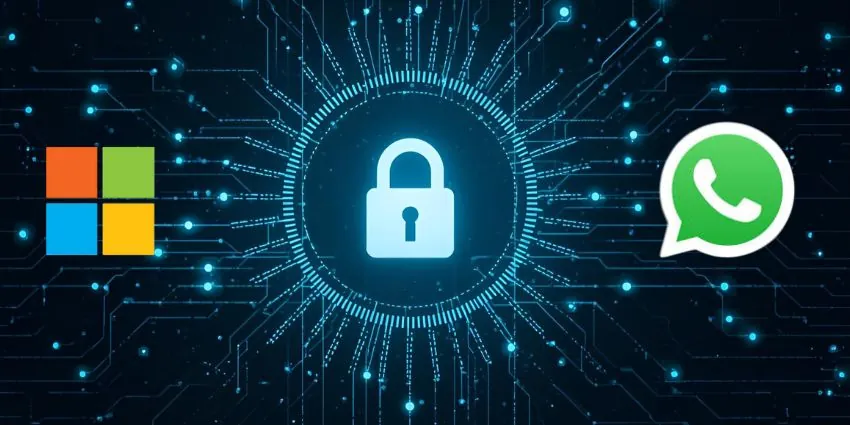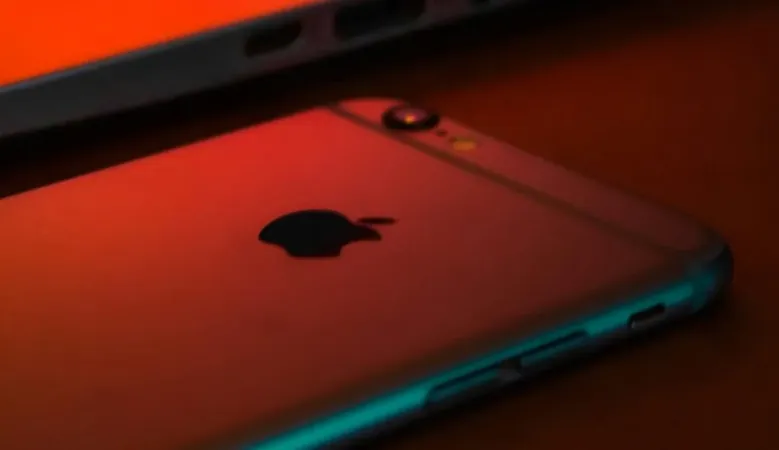
Zero Trust Revolution: What WhatsApp and Microsoft Teach Us About Cybersecurity
2025-09-01
Author: Jia
Last week, two major announcements from Meta and Microsoft underscored a pivotal shift in enterprise technology: amid increasing cyber threats, companies are ramping up their security measures.
WhatsApp's Alarming Vulnerability
Meta warned of a serious vulnerability in WhatsApp, identified as CVE-2025-55177, which could have facilitated sophisticated attacks targeting specific users. This flaw allowed unauthorized manipulation of device synchronization messages, enabling an attacker to execute commands on a victim's device without any interaction.
Meta's warning echoed a recent zero-click exploit discovered in Apple devices, highlighting a troubling trend in cybersecurity where advanced tactics are on the rise.
For enterprises, the implications are dire. With many employees using WhatsApp for work communication—whether officially sanctioned or not—this exploit poses significant risks. A successful breach could lead to the exposure of sensitive business conversations, invaluable customer data, or proprietary information. Moreover, it could trigger severe penalties under regulations like GDPR and CCPA, amplifying the stakes for businesses.
Microsoft's Strategic Response
In a proactive move, Microsoft announced that it would implement mandatory multi-factor authentication (MFA) across its Azure platform starting October 1, 2025. This requirement will cover all critical operations—Create, Update, and Delete—across various Azure tools.
By enforcing MFA, Microsoft aims to close vulnerabilities that hackers might exploit. While the company will allow extensions for customers with complex environments until July 1, 2026, the message is clear: strong security practices must become a standard.
While some IT professionals may resist the additional steps in their workflow, Microsoft’s own research reveals that MFA prevents over 99.2% of automated account breaches. The short-term inconvenience of MFA is minimal compared to the disastrous outcomes of a security breach.
Key Takeaways for Enterprises
CIOs and security leaders should take three critical lessons from these announcements:
1. Shadow IT is a significant vulnerability. Consumer applications like WhatsApp infiltrate everyday work processes, increasing a company’s risk exposure.
2. Identity verification is now the frontline defense. Microsoft's MFA policy reflects the broader Zero Trust architecture, where every access request is scrutinized, no matter the context.
3. Investing in security is essential for business continuity. The financial repercussions of data breaches overshadow the costs associated with preventative measures.
Conclusion: Time for a Security Overhaul
These announcements from Meta and Microsoft deliver a clear message: cybersecurity cannot be an afterthought.
As cyber attackers become increasingly sophisticated and vendors adopt stringent protocols, it's imperative that businesses revise their governance models, assess employee behaviors, and bolster identity security frameworks.
The reality is that systems will face challenges; the real question is whether organizations are prepared to respond effectively.





 Brasil (PT)
Brasil (PT)
 Canada (EN)
Canada (EN)
 Chile (ES)
Chile (ES)
 Česko (CS)
Česko (CS)
 대한민국 (KO)
대한민국 (KO)
 España (ES)
España (ES)
 France (FR)
France (FR)
 Hong Kong (EN)
Hong Kong (EN)
 Italia (IT)
Italia (IT)
 日本 (JA)
日本 (JA)
 Magyarország (HU)
Magyarország (HU)
 Norge (NO)
Norge (NO)
 Polska (PL)
Polska (PL)
 Schweiz (DE)
Schweiz (DE)
 Singapore (EN)
Singapore (EN)
 Sverige (SV)
Sverige (SV)
 Suomi (FI)
Suomi (FI)
 Türkiye (TR)
Türkiye (TR)
 الإمارات العربية المتحدة (AR)
الإمارات العربية المتحدة (AR)